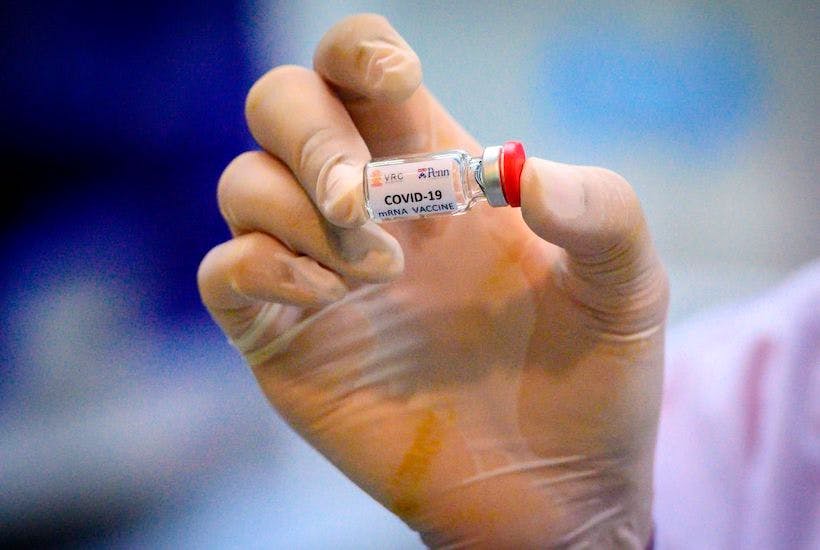Another week, another set of preliminary results from a Covid-19 vaccine trial. This time it is the Moderna vaccine candidate, mRNA-1273. And, to judge by the figures put out by the company this morning, it has outdone the Pfizer vaccine in its efficacy. Out of the 30,000 people involved in the phase three trial (half of whom were given the vaccine and half of whom were given a placebo), 95 went on to contract Covid-19. Of those who became infected, 90 were in the control group and only five had been given the vaccine. Eleven participants had a severe case of Covid, all of whom were in the control group.
The findings have allowed Moderna to claim, provisionally, that the vaccine is 94.5 per cent effective. The findings have also been approvedby the US government’s Data Safety Monitoring Broad, which is independent from the company.
What does this mean? As with last week’s news from Pfizer these results are provisional. Moderna says it plans to apply to the US Food and Drug Administration (FDA) for emergency use authorisation once 151 cases of Covid-19 have been detected in the group (i.e. another 56 on top of the 95 so far).
Health authorities will be relieved that a second vaccine appears to be effective – especially as this one comes with fewer logistical problems with is distribution. Although the Moderna vaccine uses the same messenger RNA technology as the Pfizer vaccine it does not have to be stored at the temperature of dry ice. It can be transported at normal freezer temperature of minus 20 Celsius and can be stored at a refrigerator temperature of between 2 and 8 Celsius for up to 30 days (Moderna revised this figure this morning, from seven days).
There is a little more data on the side-effects of the Moderna vaccine. Of those given the vaccine, 2.7 per cent reported pain at the site on injection, 9.7 per cent reported fatigue, 8.9 per cent myalgia (muscle pain), 5.2 per cent arthralgia (joint pain) and 4.5 per cent reported having headaches. As with the Pfizer vaccine, two injections are required. No serious side-effects were reported.
It is not such good news for Britain, however, as the Moderna vaccine is not one of those which the government has pre-ordered. The USA, EU, Japan, Canada and even Switzerland have orders placed – but not us.
However, now that a second vaccine seems to work the government will have greater confidence that the Oxford-AstraZeneca virus – which uses a more traditional technology and is far cheaper – will also prove effective. Markets responded positively to the news of the Moderna vaccine, with an immediate 1 per cent jump in the FTSE. That’s less than the 5 per cent jump when the Pfizer announcement dropped last Monday, but then that news is still built into prices. However, the full results have yet to be published for either vaccine, and even then it will take weeks or months before the vaccine is in general circulation.
Got something to add? Join the discussion and comment below.
Get 10 issues for just $10
Subscribe to The Spectator Australia today for the next 10 magazine issues, plus full online access, for just $10.





















Comments
Don't miss out
Join the conversation with other Spectator Australia readers. Subscribe to leave a comment.
SUBSCRIBEAlready a subscriber? Log in